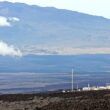Global issues, personal perspectives
By Wang Haibin, July 24, 2012
It is not so simple to answer whether, given the dangers of climate change, the benefits of nuclear power outweigh the risks in developing countries. Different groups of people in the developing world may view the risks and benefits very differently.
For the purposes of this essay I will divide people in the developing world into two categories: a benefit group and a risk group. People in the benefit group, largely poor, are quite vulnerable to the negative effects of climate change, including drought, heat waves, rising sea levels, more frequent and stronger storms, food shortages, and so on. Thus, they may see significant benefits in nuclear energy and its potential to slow climate change. People in the risk group, on the other hand, are more capable of adjusting to climate change. Therefore, it might be expected that they would perceive greater risks in the development of nuclear energy than do the poor.
As the political scientist Francis Fukuyama has written, "Wealthy people have had disproportionate influence in most polities at most times in history." Given that members of the risk group are better off financially than members of the benefit group, class-based imbalances in political influence represent a large potential obstacle to the further development of nuclear energy in the developing world.
Making this obstacle even harder to surmount is that most nuclear reactors must be built where water is abundant (particularly along seacoasts or riversides). Locating these facilities close to water is an issue of convenience as well, because proximity to water eases delivery of the large, heavy pieces of equipment that are required for the construction and maintenance of nuclear power plants. But seacoasts and riversides are also the places where members of the risk group are most likely to live. (In China, to take one example, members of the benefit group might or might not live in such areas). That prosperous areas overlap with sites otherwise appropriate for nuclear power plants has ominous implications for the further development of nuclear energy — especially in the aftermath of the accident at the Fukushima Daiichi Nuclear Power Station.
To members of the risk group, who enjoy economically advantageous positions, nuclear power is just one energy option. At the same time, while the effects of global warming may seem like a distant threat to members of the risk group because of their greater resources, a nuclear accident on the scale of Fukushima would threaten both their physical well-being and their livelihoods. Thus, fear of nuclear accidents provides members of the risk group strong incentives to adopt a not-in-my-backyard attitude.
Because people in the risk group have more economic and political power than do members of the benefit group, the expansion of nuclear energy in the developing world seems to face great difficulties. Further complicating matters is a widespread skepticism in the developing world regarding government in general, and in particular government's competence to monitor the nuclear industry. This is a skepticism that characterizes both the risk group and the benefit group.
Political calculations. In China, the central government immediately after Fukushima stopped assessing and approving new nuclear power projects. With the passage of time, some local governments have become eager to resume nuclear projects for the sake of economic growth, but the central government has remained hesitant to grant go-aheads. On May 31 of this year, however, indications emerged that the central government might resume steps toward nuclear expansion. But targets for nuclear power generation seem to be falling sharply. In early 2011 it was envisioned that China's nuclear power capacity would reach 86 gigawatts by 2020, but current forecasts call for an expansion to as little as 60 gigawatts.
This downward adjustment manifests the caution that the central government feels it must exercise in the post-Fukushima era. The central government has spent a great deal of time, of course, weighing the wishes of both the risk group and the benefit group. The government's calculation essentially involves the economic and environmental gains of nuclear energy versus the economic and environmental losses if a nuclear accident occurs — no matter how unlikely such an accident might be.
China has a number of tools at its disposal beyond nuclear energy to help it address climate change. These include the further development of lower-carbon energy sources like natural gas, or zero-carbon energy sources such as wind and solar. The government can also acquiesce in local governments' unconventional measures, like widespread blackouts, to achieve targeted reductions of carbon dioxide emissions — and in fact already did so in late 2010. But if just one serious nuclear accident occurs in China, even if it is not as severe as Fukushima — and especially if it occurs in one of the three most prosperous areas in the country (the Pearl River Delta, the Yangtze Delta, and the Bohai Bay area) — it will be an economic disaster for the country and a political disaster for the central government. Indeed, such an accident might be more than the government could afford.
Topics: Climate Change, Nuclear Energy
Share: [addthis tool="addthis_inline_share_toolbox"]














